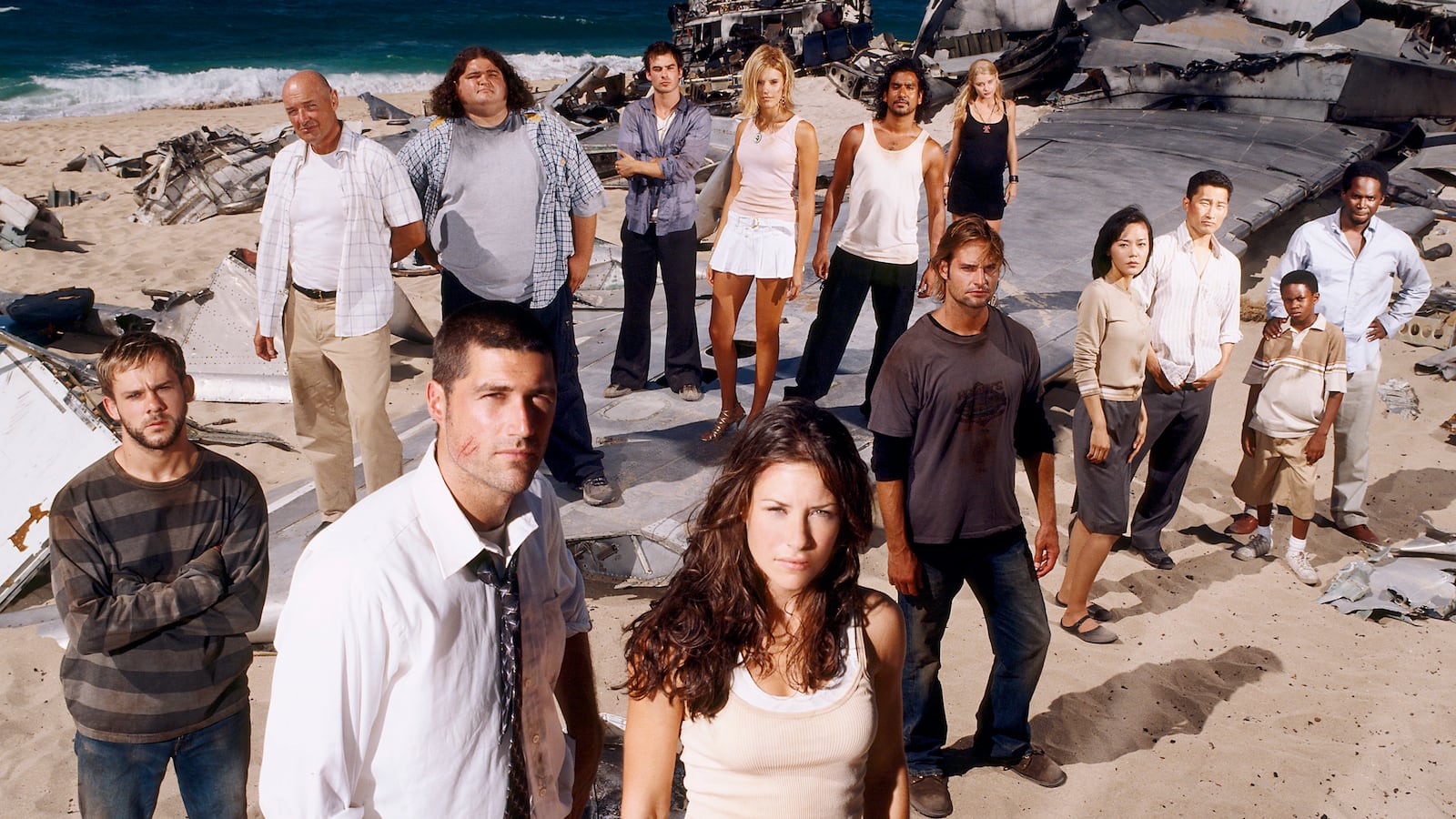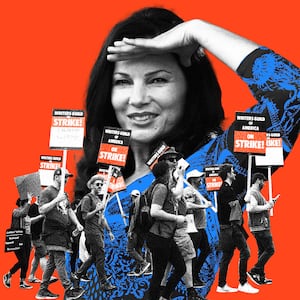For six seasons, Lost was a game-changing hit for ABC—one that helped redefine the rules for television as a medium. Behind the scenes, however, some who worked on the show described its creative environment as “cruel, brutal, destructive, racist, sexist, bullying, angry, abusive, and hostile.”
Those descriptors and more appeared in a word cloud that journalist Maureen Ryan created for Lost showrunner Damon Lindelof and executive producer Carlton Cuse as she reported her upcoming book Burn It Down: Power, Complicity, and a Call for Change in Hollywood. While Lindelof admits that he “failed” back then to create a “safe” work environment, he also says he doesn’t recall certain specific allegations from Ryan’s book—an excerpt of which Vanity Fair published on Tuesday.
The excerpt includes a number of allegations from former Lost writers and actors who allege that the show was uniquely toxic—thanks in particular to an atmosphere where racist humor allegedly helped determine who was “in” and who was “out” in the writers room. “There was apparently some discomfort around the show’s cleaning staff using the bathroom in the Lost offices,” Ryan writes, “and there were ‘jokes’ about ‘putting up a Whites Only sign.’”
Writer Monica Owusu-Breen, who worked on Lost’s third season, described it as the most “nakedly hostile” workplace of her career. “There was no way to navigate that situation,” she told Ryan, and part of the issue “was they really didn’t like their characters of color.” As another unnamed source put it, “it felt as though every pathway—other than accepting the cruelty, sexism, and racist commentary—was blocked.”
Actor Harold Perrineau described to Ryan the frustration of being written off in Season 2 after he’d dared to push for more lines from his character, Michael—a single Black father—expressing concern for his kidnapped son, Walt. In a script that became a flashpoint, Perrineau remembered that Michael was with another (white) character, Sawyer, and that after mentioning his own son once, his character spent the rest of the episode focusing entirely on Sawyer—“but he never again mentions Walt.”
“I don’t think I can do that,” Perrineau recalled thinking. “I can’t be another person who doesn’t care about missing Black boys, even in the context of fiction, right? This is just furthering the narrative that nobody cares about Black boys, even Black fathers.”
Perrineau told Ryan that he voiced his concerns to Lindelof and Cuse, who did not seem to agree with him and said the episode was not about him. Then, weeks before Season 2 ended, Perrineau found out his character would not return (though the actor did later come back as a guest for several episodes in Season 4).
Multiple sources told Ryan that Lindelof joked about Perrineau’s dismissal by saying, “He called me a racist, so I fired his ass.” Lindelof said he didn’t recall “ever” saying that, Ryan reports. “And I’ll just cede that the events that you’re describing happened 17 years ago, and I don’t know why anybody would make that up about me.”
At one point during their conversations, Ryan reports that Lindelof addressed her word cloud directly. “Would it shock you to learn or believe that, despite the fact that I completely and totally validate your word cloud, that I was oblivious, largely oblivious, to the adverse impacts that I was having on others in that writers room during the entire time that the show was happening?” he asked. “Do you feel like I knew the whole time and just kept doing it?”
The Watchmen and Mrs. Davis creator added: “The way that I conduct myself and the way that I treat other humans who I am responsible for and a manager of is a by-product of all the mistakes that were made. I have significantly evolved and grown, and it shouldn’t have had to come at the cost and the trauma of people that I hurt on Lost.”
Along with Lost, Ryan’s book is set to tell more behind-the-scenes stories from popular shows like Saturday Night Live, The Goldbergs, and Curb Your Enthusiasm. The book hits shelves on June 6.






